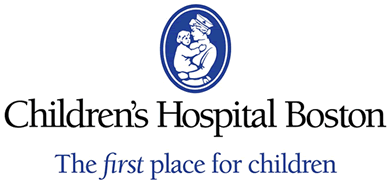Mentored Clinical Career Award in Adolescent Substance Abuse
| Status: | Completed |
|---|---|
| Conditions: | Psychiatric |
| Therapuetic Areas: | Psychiatry / Psychology |
| Healthy: | No |
| Age Range: | Any |
| Updated: | 11/18/2012 |
| Start Date: | March 2008 |
| End Date: | June 2012 |
| Contact: | Sharon L Levy, MD, MPH |
| Email: | sharon.levy@childrens.harvard.edu |
| Phone: | 857-218-4308 |
The goal of this project is to determine the barriers to, and risks and benefits of random
laboratory drug testing for adolescents with identified drug or alcohol problems.
Use of drugs and alcohol is associated with a variety of health care problems, making
settings where adolescents receive routine medical care ideal for implementation of routine
screening and early intervention. However, little research has been conducted on the
efficacy of interventions for adolescent primary care patients who are using drugs or
alcohol. Urine drug testing can be used for a variety of indications, including school or
work based population surveillance, verification of history, or monitoring of individuals
who are in treatment for a drug-use disorder. This study will focus exclusively on the
therapeutic use of urine drug testing. Drug testing can be a useful therapeutic adjuvant
for patients with drug-use disorders in a variety of settings.
This study will investigate the use of random laboratory drug testing as a therapeutic
intervention for teens with drug problem use, abuse or dependence. We have 5 objectives:
1. To develop a standardized protocol for random urine drug testing, produce a manual and
training protocol, and refine the protocol in preparation for a future efficacy trial.
2. To estimate the cost of a random drug-testing program.
3. To determine the factors that are associated with willingness to be tested, and
barriers to enrolling adolescents in laboratory drug testing programs.
4. To perform an initial, small-scale experimental trial of the random drug testing
protocol. The purpose of this trial is to estimate the effect size of the intervention
and will be used in calculating the sample size for a future stage 1b trial.
5. To determine the potential risks to adolescents who participate in a random drug
testing program, including possible breach of confidentiality, greater conflict between
the parent and child, more difficulty with communication between clinician and patient,
increased use of drugs not detected by routine urine screens (i.e. inhalants), and
increased use of strategies and products known to defeat drug tests.
Inclusion Criteria:
- Adolescents ages 12-21
- Participants must have use of alcohol, cannabis, or another substance on at least 2
occasions in the 30 days preceding their initial assessment or 6 or more times in the
past 90 days
- Participants must have health insurance or be willing to pay for the laboratory costs
associated with drug testing.
- Participants must provide informed assent and, for those under 18, parental consent.
Exclusion Criteria:
- Participants who require immediate hospitalization or immediate referral to
residential substance abuse treatment
- Participants who cannot understand or read English at a 6th grade reading level
- Participants who are enrolled in the ASAP buprenorphine program
- Participants who report previous use of inhalants or any other substance that is not
easily detected with urine drug testing
We found this trial at
1
site
Children's Hospital - Boston Boston Children's Hospital is a 395-bed comprehensive center for pediatric health...
Click here to add this to my saved trials
